(Article from the RACGP website)
Chronic pain affects one in five Australians. newsGP spoke with a patient and a GP about some of the best ways to tackle the situation.
Soula Mantalvanos was sitting on a fit-ball in her office when it exploded underneath her, sending her crashing to the concrete floor.
The accident changed the self-employed graphic designer’s life, filling it with chronic pain.
‘I still remember that impact. It was so big, so powerful. I felt it rocked my whole body,’ Ms Mantalvanos told newsGP.
‘It was excruciating, the pain was awful. I was almost paralysed, I couldn’t move.’
.jpg.aspx)
Four-and-a-half-years after the fall, unable to stand barefoot or lie on her back, Ms Mantalvanos was finally diagnosed with pudendal neuralgia, which is pain caused by the nerve that supplies the skin between the pubic bone and tail bone.
According to a US study, one in five Australians live with chronic pain, including adolescents and children. This prevalence rises to one in three people over the age of 65. One in five GP consultations involves a patient with chronic pain and almost 5% report severe, disabling chronic pain.
Dr Paul Grinzi, a GP with an interest in addiction medicine, said all people experience pain throughout their lives.
‘We all know what pain feels like,’ he told newsGP.
‘Patients experiencing chronic pain syndrome generally will experience pain every day on an ongoing basis.
‘It can be quite debilitating and can lead to people becoming isolated and more unhealthy because of how they react to their pain.’
In August, the RACGP will hold the ‘GPADD18 – General Practice in Addiction Conference’, which will deal with some of the most common addictions and associated conditions presented to GPs, including daily pain.
Dr Grinzi said that while people genuinely fear pain, GPs can help.
‘Often, we have trained as GPs to focus on medication, [but] we know there aren’t any medications that really do a great job in helping people with their chronic pain,’ he said.
‘The focus now has switched away from medication and more to ensuring people’s lifestyle factors are optimised.
‘This includes improving sleep patterns, their exercise patterns, diet, and relationship patterns.’

Dr Grinzi said a broader approach actually helps people recover from the consequences of their chronic pain much more than popping a pill.
More than 11 years after her accident, Ms Mantalvanos has learnt to live with and manage her chronic pain without being dependant on drugs.
‘I am doing better, but I am nowhere near the person that I was,’ she said. ‘I have to live with a lot of limitations, a lot of things that I can’t do.
‘It’s very hard.’
Ms Mantalvanos said we do not yet have proper language for pain.
‘The ads that we see on television are, “Pop a tablet and continue doing what you do”,’ she said.
‘We have got to do better. It’s a very complex issue, but it can be solved.’
Ms Mantalvanos believes GPs need to have great resources on which they can rely in order to help patients. However, she said, patients also have work to do and need to be part of their pain management.
‘A GP can’t help the patient if the patient is not involved,’ Ms Mantalvanos said.
‘I think that is a very important thing that has to be understood for a chronic condition.’
Ms Mantalvanos believes practitioners should explore alternative options before offering painkillers.
‘Tell the patient to change their behaviour before they get to the meds,’ she said. ‘The worst thing we have done … is thrown the medication at the patient without asking them to change their day-to-day activity.’
She said there is also no single message that can be given to those experiencing pain.
‘This is the complexity, that we all experience it differently.’
Soula Mantalvanos will be speaking at the RACGP’s GPADD18 – General Practice in Addiction Conference, to be held 4–5 August at Chirnside Park, Victoria.


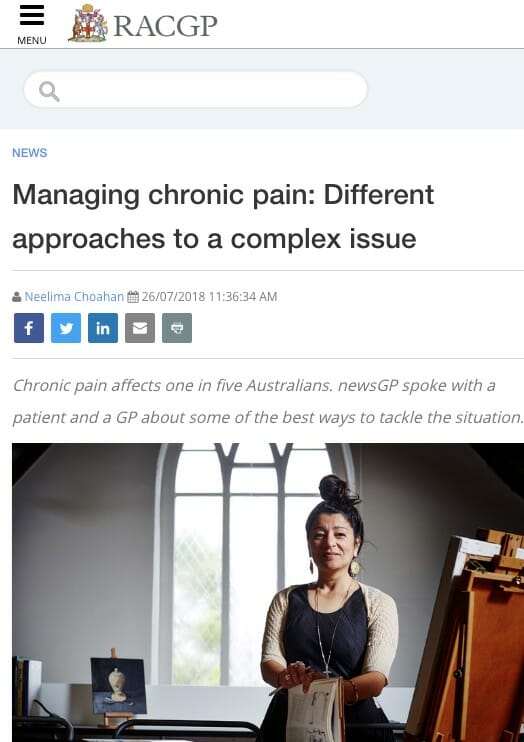


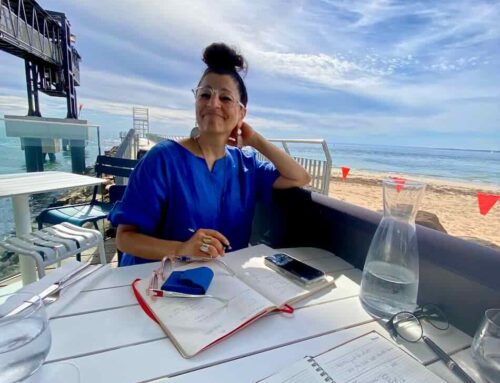
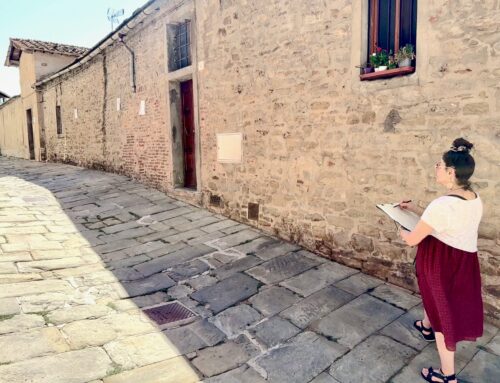
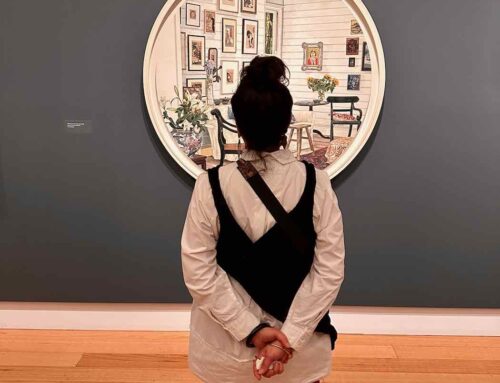
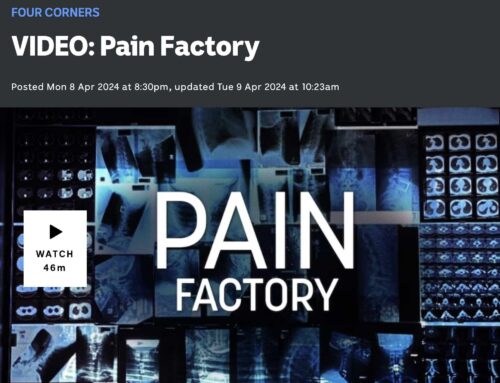
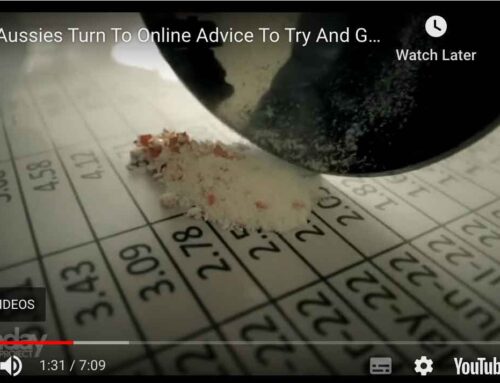
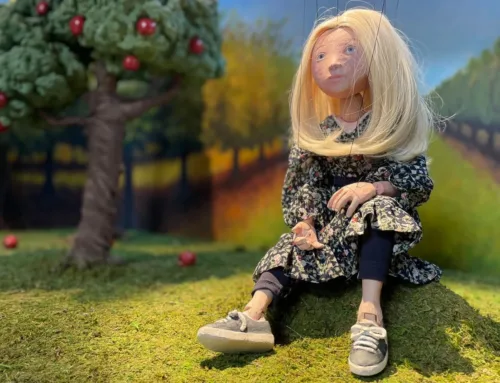
Hello Soula,
If you can find a Chinese acupuncturist(trained in China) it may be very helpful. I am on week 4 of treatments. I am seeing Dr Zhang at Boston Accupuncture in Massachusetts, USA. He is very knowledgeable. I am Vegan for 3 weeks and treated by Dr. Zhang. My muscles in my back were pulling downward on one side and anal sphinctermuscles pulling up along with stomach muscles affected from Pudendal Neuralgia. I am seeing improvement.
Good luck!
Best Wishes,
Susan